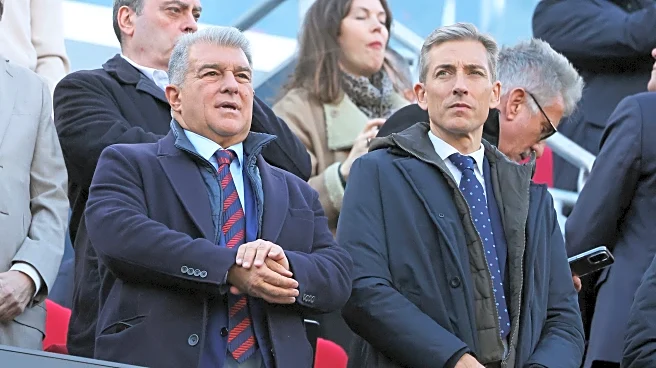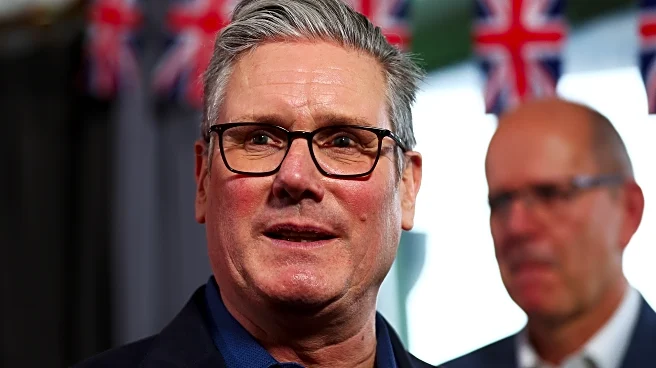What's Happening?
Joseph Schwartz, a former nursing home magnate, was sentenced to three years in prison for defrauding the government of $38 million. Schwartz paid $960,000 to lobbyists Jack Burkman and Jacob Wohl to seek
a pardon from President Trump. Despite Schwartz's conviction, President Trump granted him a full and unconditional pardon seven months later. The involvement of lobbyists and the substantial payment have raised concerns about the influence of money in the clemency process. The White House denied any lobbying ties, stating that the President is the final decision-maker on all pardons. Schwartz's case is notable as it went against a recommendation by Trump's Justice Department, which cited the seriousness of Schwartz's crime.
Why It's Important?
The case highlights potential disparities in the justice system, where financial resources may influence outcomes. The involvement of lobbyists in securing pardons raises ethical questions about access to justice and the integrity of the clemency process. This situation underscores concerns about a 'special tier of justice' for those who can afford to pay for lobbying services. The pardon contradicts Justice Department guidelines, which typically recommend considering pardons only after individuals have completed their sentences and demonstrated rehabilitation. The case may prompt discussions on reforming the pardon process to ensure fairness and transparency.
What's Next?
The Schwartz case may lead to increased scrutiny of the pardon process and lobbying activities related to clemency. Legal experts and policymakers might advocate for reforms to prevent potential abuses and ensure equitable access to justice. The involvement of Burkman and Wohl, who have faced legal issues themselves, could further fuel debates on the ethical implications of lobbying for pardons. The case may also influence future decisions on clemency, particularly regarding individuals with significant financial resources.
Beyond the Headlines
The Schwartz pardon raises broader questions about the role of money in the justice system and the potential for inequities in legal outcomes. It highlights the need for transparency and accountability in the clemency process, as well as the ethical considerations of lobbying for pardons. The case may prompt discussions on the balance between presidential discretion and the principles of justice, potentially leading to calls for legislative or policy changes to address these concerns.











